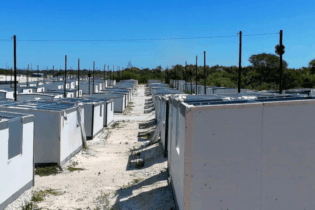The Gauteng Provincial Government will in the next five years spend R60 billion on building and maintaining infrastructure.
This will contribute to the creation of an additional 100 000 jobs, and facilitate the development of 50 black industrialists. Delivering his State of the Province Address (SOPA) at the Sefako Makgatho Health Sciences University in Tshwane, Premier David Makhura said the provincial government will upscale its Welfare-to-Work Programme to enable 100 000 unemployed young women, who currently depend on State grants, to graduate and create self-employment in the township economy. Makhura said having learnt from the impact of Tshepo 1 Million in improving the skills, employability and entrepreneurship potential of more than half a million young people, the provincial government is mainstreaming youth employment interventions into all 10 high-growth sectors. “Every company in every sector that requires our support must create opportunities for the youth. We are using the lever of public procurement policy decisively to promote youth employment, women empowerment, and the growth of black businesses and township-based enterprises,” Makhura said. Over the next five years, Makhura said they will step up economic empowerment programmes in Gauteng by spending R4 billion per annum in buying goods and services from 2 000 township enterprises, and using the infrastructure programme to support 50 black industrialists, enabling them to participate in the 10 high-growth sectors of the Gauteng economy. The provincial government will also support 50 emerging black farmers and 20 black agro-processors to help them turn their businesses into full-scale commercial agri-food enterprises; support 500 cooperatives in the care economy through an enabling policy framework that will enable government to buy uniforms, dignity packs and food packs for vulnerable households directly from cooperatives, instead of going through established businesses, and create 250 000 sustainable and decent jobs for young people. “We will use the provincial government’s infrastructure programme to promote industrialisation by buying building and construction materials made by transformed South African manufacturers, especially those located in Gauteng. The materials for building new houses, schools, hospitals, clinics, roads and government buildings must come from South African firms,” Makhura explained. From May this year, the installations, repairs and maintenance on public facilities will be done by artisans from townships.Township Economic Development Bill
Following a commitment made in July 2019, the provincial government will in June this year introduce the Township Economic Development Bill in the Provincial Legislature.The Premier said the new law will nullify all bylaws that inhibit, frustrate and suppress the operations of small, micro and medium enterprises (SMMEs) and informal businesses.
This new law will create new conditions for SMMEs and township businesses to create wealth and employment as they grow and prosper, he said.






